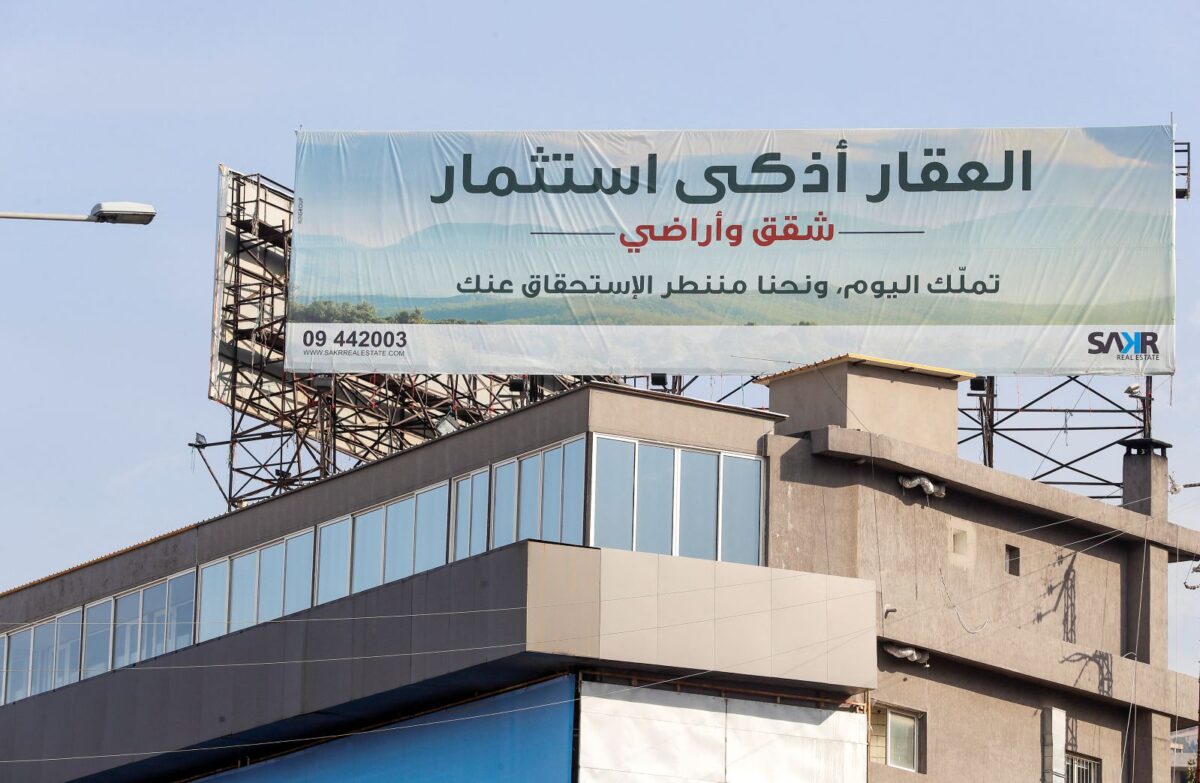
Lebanon’s real estate market is showing signs of improvement. More deals are happening, and some money is flowing in from abroad. But unless big changes happen, like fixing the banks, speeding up government offices, and making loans available again, the recovery will be limited according to experts in the sector.
The real estate market in Lebanon has faced a series of severe challenges in recent years, leaving a deep impact on its performance and stability. Since the onset of the economic and financial crisis in late 2019, followed by the COVID-19 pandemic and the recent Israeli-Hezbollah war, the sector has entered a state of stagnation and uncertainty.
Property buying and selling activity has declined significantly, purchasing power has dropped among Lebanese citizens, and real estate has become a temporary safe haven for savings threatened by the banking collapse.
What’s Driving the Market Now?
According to Massaad Fares, Honoray President of the real estate brokers syndicate and Secretary of the real estate developers association, there is more interest lately, especially from Lebanese abroad.
“We’re seeing more people asking about land or going back to deals they paused before,” he says. “There is definitely positive momentum.”
Still, he says there’s one big issue: no financing.
Without bank loans or mortgages, only people who can pay in cash can buy property. That leaves out most Lebanese, especially young people or families trying to own their first home.
In recent months, the real estate market has begun to show notable shifts and is regaining some of its vitality, amid signs of a relative return to political and security stability. This has helped restore a degree of lost confidence both domestically and internationally.
Additionally, remittances from expatriates and renewed interest from investors have contributed to reviving the sector and creating a new dynamic based on investment opportunities that are still considered attractive compared to markets in the region.
“With property prices still competitive compared to regional markets, a new wave of investment opportunities appears to be taking shape, giving the sector a much-needed boost,” Jawad Harfoush, a real-estate lawyer told NOW.
Who’s Actually Buying?
Right now, it’s mostly cash buyers. Investors, wealthy Lebanese expats, or Gulf nationals are scooping up property, especially anything that looks like a bargain, according to Jawad.
In some areas, prices dropped over 60 per cent since 2019. So if the money is there and the and the will to invest in Lebanon, now it is the moment.
People are starting to feel a bit more confident, both inside and outside the country. Expats are sending more money back, and some investors are starting to pay attention again.
Claudia Harb, a banker who lives in the United States told NOW about her recent investment in properties and land in Lebanon due to the bargaining prices she has been getting.
“Two flats in Aley, one land in Metn and one land on the way in the Bekaa valley that is suitable for agriculture tourism projects. I see potential in this country and I see myself making a comeback one day, if not me, my children one day.” Said Claudia.
“The cash was there, the offers were attractive, so we thought why not? And this is what our friends and family have been doing for the past three four years.” She added.
The reality?
It’s been a rough few years. Since the financial meltdown in 2019, housing loans have been off the table, making it nearly impossible for average citizens to afford a place of their own.
Aside from a brief window in 2020, when people with money stuck in banks rushed to buy property using bank checks, the market’s been in deep freeze.
On paper, it looks like things are moving. Bank Audi reported a 60 per cent jump in property transactions, and government data shows more than twice as many real estate deals were registered in 2024 compared to 2023.
But for individuals like Walid Moussa, head of the Real Estate Brokers Syndicate. He thinks those numbers are a bit misleading. “Most of those deals were old contracts that just finally got registered,” he says. “It doesn’t mean people are actually buying a ton of new property.”
In fact, Moussa says 2024 was one of the weakest years the market has ever seen. This is because many land registry offices weren’t functioning properly, security conditions worsened after the late-2023 war and attacks in 2024 which kept expats away, additionally there were no home loans, so only cash buyers could make moves. All of this with a year-long political deadlock that shook everyone’s faith in the market.
So while there’s a little more hope in the air, the real estate comeback might still be a long way off, unless major reforms especially in banking and lending kick in soon.
Investors are waiting, but so is the weapon issue
When it comes to rebuilding Lebanon, Fares says the interest is definitely there. He recently toured the Gulf and met with major investors and officials. The message was clear: “Everyone’s ready, but they’re waiting for one thing.” And that is political and security stability.
“No investor is going to risk millions of dollars in a country where there are still non-state weapons,”
He is hopeful that the Lebanese leadership, President, Prime Minister, and Parliament can sort things out without clashing with Hezbollah for the benefit of Lebanon as a whole.
Rodayna Raydan is a Lebanese-British journalist. You can follow her on Twitter @Rodayna_462
The views in this story reflect those of the author alone and do not necessarily reflect the beliefs of NOW.








